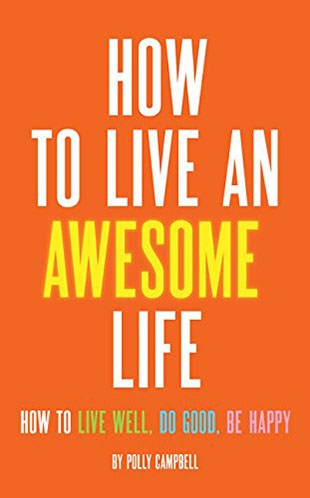"Technically, to say that something is awful is to say that it is full of awe, which is the feeling we get when we are bowled over by something amazing and big and unexplainable. That's the feeling we get when we stare at the full moon over the Rocky Mountains or watch a spider weave its web.
"But these days the word awful has been co-opted to imply something terrible. Dreadful. Something so scary or horrific that we are appalled, shocked, devastated by the sheer badness of it all.
"Awful stuff nowadays means bombs that can bring down towers of concrete and steel. Mutant cells that replicate so fast they can kill us in months; love that once infused every breath dissipating into emptiness in just a few years' time; the loss of a job after thirty years; a hurricane with ninety-mile-per-hour winds and thirty-foot waves -- all awful.
"We wouldn't say that those things are awesome, no, but they contain the seeds of awe just the same. Think of the awesome and sometimes awful power of Mother Nature. Both words are impressive, both are awe-filled, but one surrounds you with its mysticism and possibility and beauty. The other scares the bejeezus out of you.
"When I talk about awesome, I'm taking the more benevolent, marvelous view of the word. After all, I'm part of the generation that made 'totally awesome' into a tagline. First popularized in the late '60s and '70s, the term became popular as slang for 'excellent' and was often associated with the California surfers who used it to describe primo surfing waves. It didn't hurt that movie characters like Spicoli, played by Sean Penn in Fast Times at Ridgemont High, batted the word around on the big screen: 'Awesome, dude.'
"When I talk of awe, I'm talking about wonder. About accessing the amazing. I'm using the word to express reverence, admiration. Awe like this can show up in every aspect of our lives – even the parts we think of as not so great.
"When we can look at all aspects of our lives with this kind of wonder and admiration, awe changes us. We are broken open by it. It forces us to rethink things. To tweak our behaviors and choices. To move toward things that matter.
"Psychologist Nicholas Humphrey says that awe forces us to reconfigure our mental model so we can make sense of what we've seen and experienced. It broadens us, inspires us.
"Awe, then, has the ability to awaken us. It can show us the beauty that already exists and remind us who we are at our spiritual core. It brings us closer to our purpose and passion and helps us create meaning. It helps us to live with the mystery in life, to survive the uncertainty of it all. It allows us to sink into the experience of living. To engage in it. To be touched by it. To participate rather than needing to manipulate, contrive, or control every moment.
"When you live in awe of your life, you are open to diverse experiences. Some are easy-peasy, comfortable, and even joyous. Others totally suck. But you can be okay because you know that every experience is multi-dimensional and that the possibilities are limitless. Life is never just one thing. It is always more than bad or good."
